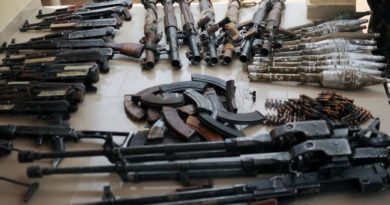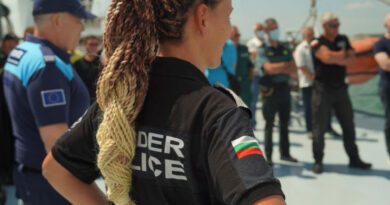Cross Border Crimes in Africa and the Urgency of Strong Institutions
Martin Igwe is Director Media and Advocacy Center. West Africa Action Network on Small Arms in Nigeria
In recent times Ethiopia has witnessed conflict at Alfashada border, this Area borders Ethiopia troubled Tigray region causing tens of thousands to be homeless. In Central African Republic rebels operating from neighbouring countries are threatening the countries democratic election. From July 2019 to June 2020 the united Nations documented 880 incidents of conflicts\abuse affecting civilians {thehumanitarian.org.} Abduction of school children and farmers in Nigeria, kidnapping and illegal migration is almost a weekly occurrence. In a continent being crippled by COVID 19 pandemic economically, if Africa must tap from the gains of African continental free trade opportunities the need to change the ugly narratives remain a necessity.
Institution, an organized system of social relationship which embodies certain common values and procedures and meets certain basic needs of the society (Horton & Hunts Sociology, 1964) is an important ingredient needed for a peaceful border community. Social institutions which transmit social heritage like family, Legal and religious institutions which controls and solves social problems remain an important tool to Peace even beyond borders.
Defeating this global concern (trans-border crime) requires African states to go beyond military campaign and think of harmonized institutional framework capable of relaunching trade, improving public services, developing infrastructure, enacting laws stringent enough to deter criminal elements.
Religion and cultural proximity of Nigerian Borno state which each year attracts large members of Chadian immigrants has facilitated recruitment of transborder criminals in Borno communities. School enrolment is poor, access to public services is also epileptic. Infact, the ratio of doctor to patients is 1:140,000 (Crises group-org. fighting boko haram in chad). The planned effort to resolve agricultural activities in Chad basin through channeling water from Ubangi river in the Democratic Republic of Congo to Chad lake has remained a pipe dream hence, these communities remain a hot arena for criminals. Benin Republic was a major cocoa exporter during Nigerian civil war despite non-existent of production of this product in their country. Nigeria cocoa was diverted through Benin. Benin illegally imports a large proportion of its petroleum products from Nigeria where consumer prices are highly subsidized. These two informal cross border trade (ICBT) have in the past accounted for large share of Benin income, employment and fiscal revenue.
Magama and Jibiya community leaders in Katsina state Nigeria confirmed to us that it is only water that does not pass through their community to Niger Republic. Despite regional and global efforts to eradicate transborder crime in Africa, Nigeria constitutes the largest number of victims in transnational crime network in Africa. (Journal of Peace & Conflict Studies Vol. 41 No. (2014) 61-84)
Strong institutions in our borders have an important redistributive role in the economy. They make sure resources are properly allocated and ensure that economic resources are protected. They also encourage trust and provide policy and justice systems which adhere to a common set of laws. Covid-19 economic consequences are worrisome, unconventional strategies capable of reviving African Global economy has become imperative Integration of best technology is an emergency. In Nigeria for example, government should make sure that in every international border, there should be a joint security team comprising of police, Army, Airforce, Navy, Immigration, Customs, National Intelligence Agency (NIA) National Agency for the Prohibition of Trafficking in Persons (NAPTIP), Nigerian Security and Civil Defence Corp (NSCDC), and the Federal Road Safety Corp (FRSC). There is the need for churches, mosques, banks, Federal Inland Revenue Service (FIRS), ECONOMIC and Financial Crimes Commission (EFCC), Independent Corrupt Practices Commission (ICPC), Markets, Prisons, Hospitals, Mobile courts, schools at the border communities. The National Orientation Agency (NOA), and News Agency of Nigeria (NAN) are also relevant institutions in this area that should be saddled with the responsibility of educating the larger community what to and what not to do for peace and national development. These institutions if strengthened and trained in line with global best practices will have shared sense of purpose, strong synergy, distributing duties among themselves while allowing for enough overlap capable of checkmating the excesses of another and taking advantage of what is available to solve problems. Civil society desk in all international borders is long overdue, they represent a strong institution whose responsibilities cut across other institutional activities.
Border security and security as a whole should be every body’s business. It is a flawed assumption that issues of security must remain strictly within the ambit of agencies with the lawed responsibilities. Even security agencies cannot function effectively without citizen alliance and community assistance. One of the fundamental ingredients to addressing crime is intelligence and it does not jump out from the colored screen of television or computer hence, the relevance of citizen participation and the support of stake holders. Formal and informal strong institutions in African countries and Nigeria in particular have the wherewithal to turn this challenge to economic opportunity. Let the change promised by the government begin from her borders.




